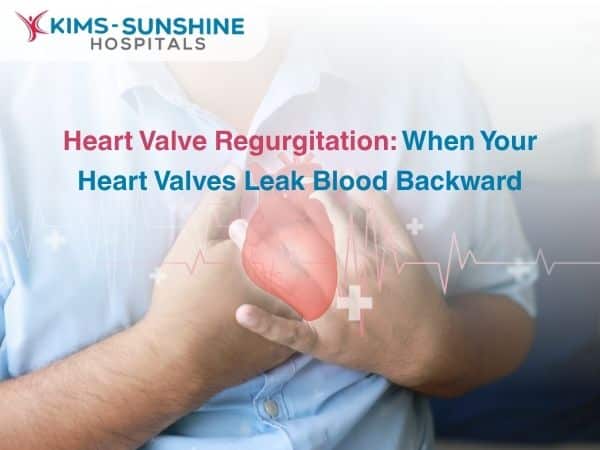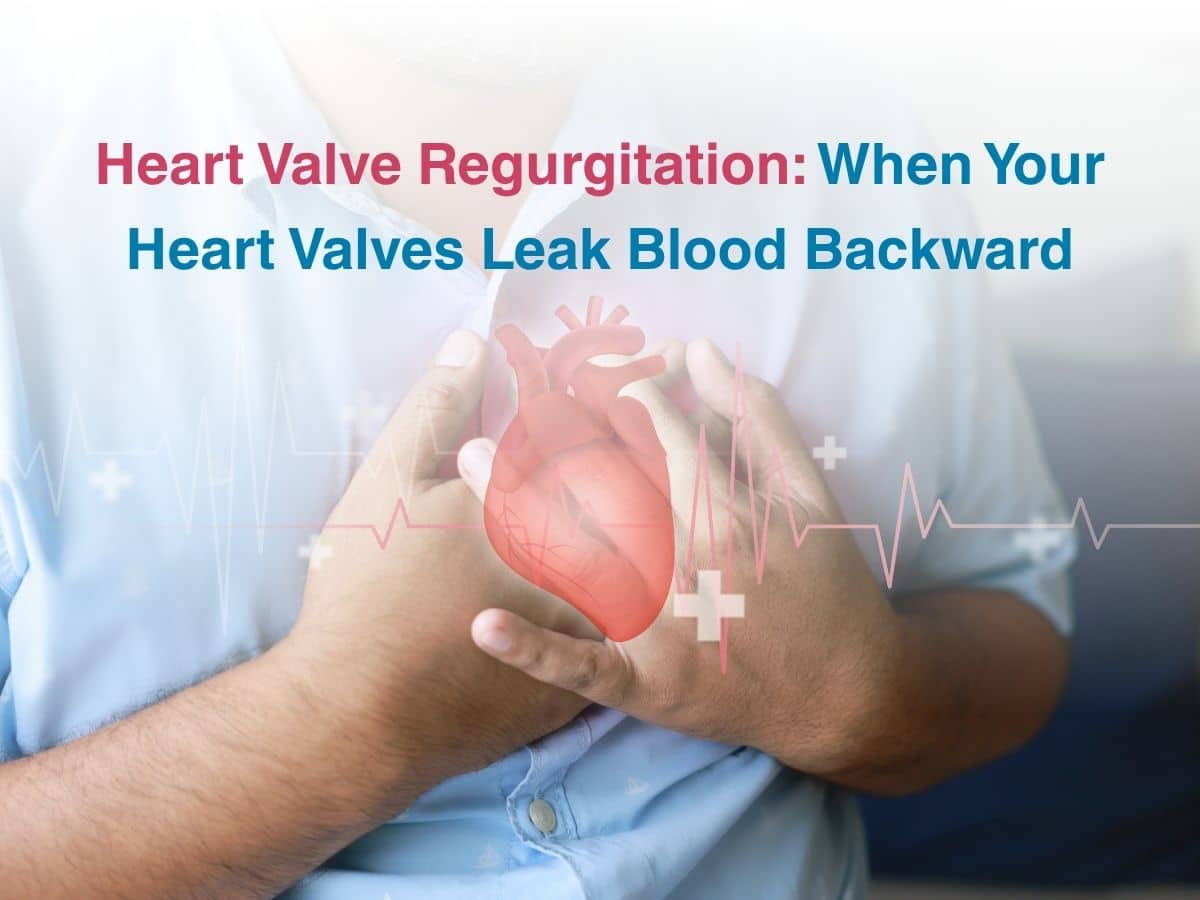
Heart Valve Regurgitation: When Your Heart Valves Leak Blood Backward
 There are 4 important valves or delicate tissue like structures in your heart- that are designed to help blood flow in one particular direction only. When these valves leak, blood can flow backwards and this can cause your heart to work harder and pump less efficiently than before. If this continues for a long time, it can cause your heart to get affected and cause long term damage too. The 4 valves that we just talked about are called the aortic, pulmonary, mitral and tricuspid valves, respectively.. Mitral valve regurgitation is the most common condition that is found in the Indian subcontinent, though the others are not completely absent.
There are 4 important valves or delicate tissue like structures in your heart- that are designed to help blood flow in one particular direction only. When these valves leak, blood can flow backwards and this can cause your heart to work harder and pump less efficiently than before. If this continues for a long time, it can cause your heart to get affected and cause long term damage too. The 4 valves that we just talked about are called the aortic, pulmonary, mitral and tricuspid valves, respectively.. Mitral valve regurgitation is the most common condition that is found in the Indian subcontinent, though the others are not completely absent.
What Is Heart Valve Regurgitation?
Heart valve regurgitation is a phenomenon where the leaflets of the heart valves don’t close properly, causing blood to leak backwards. The other possibility is when blood leaks out just as the leaflets are closing. Both of these scenarios can cause your heart to pump much harder than ever, to push the same amount of blood as it did before. If your doctor says it is mild, then you may probably not need any invasive treatment and will do just fine with medications alone. But, in more severe cases or if more than one valve are affected, you may be recommended valve repair surgery or valve replacement surgery- depending on the severity of your condition.
Causes Of Leaky Heart Valves-
The valves themselves are not singular structures, but can be thought of as gates- in the form of leaflets, which open and close one after the other in different chambers of the heart, so that blood can flow unidirectionally. When these flaps or leaflets don’t close tightly, or close slowly, leakage of blood can occur. Some common causes of valve regurgitation include-
- Rheumatic heart disease- which is the most common cause globally.
- Congenital defects
- Connective tissue disease
- If you have had endocarditis before
- If you have had any traumatic injury before
- If you have undergone radiation therapy for cancer- then you are at greater risk of having a damaged valve.
If this is not treated, secondary conditions or other problems may arise.
Symptoms Of Valve Regurgitation-
Some symptoms to watch out for include-
- Not being able to breathe freely
- A suffocating feeling or tightness in your chest is common.
- Low blood oxygen levels are also problematic.
- Fluid retention in your limbs.
Heart Valve Regurgitation Diagnosis (Echocardiogram, MRI)-
Diagnosis always begins with a detailed physical exam and taking your medical history. They will also check for edema or fluid retention. Specialised diagnostic tests like a transthoracic echocardiogram (TTE) or a transesophageal echocardiogram (TEE) may be recommended in a few cases. Otherwise, normally, a CT scan, stress tests, cardiac MRI and coronary angiograms are used to diagnose the condition and gauge its severity.
Treatment Options For Leaky Heart Valves-
Your doctor will have to first see which valve is affected, then check what kind of regurgitation you have (if it is primary or secondary), check severity and then recommend appropriate treatment. If you have mild heart valve regurgitation, then you may do well with medications like anticoagulants to prevent blood from clotting and antibiotics (to get rid of infections), diuretics to reduce edema, beta-blockers to decrease heart rate, etc. among others. If you have secondary regurgitation, then treating the underlying cause can make it go away in some time. If you are at risk of developing heart failure or already are in that stage, then surgical repair or replacement of the affected valves will be suggested.
Conclusion
Heart valve regurgitation is a condition that needs to be diagnosed and treated in a timely fashion. Surgery is only recommended when all other avenues have been exhausted. If you have heart failure due to regurgitation, then you may feel better with diuretics or surgical insertion of an LVAD. Open heart surgery for repair or valve replacement is seldom done, unless absolutely necessary as it can take longer for you to heal. Minimally invasive options are available these days- which means you will get better sooner, with lesser risk of developing post surgical complications. Whatever may be the treatment choice, making sure that your lifestyle is heart friendly is of the utmost importance. So, eat well, exercise regularly, don’t smoke or drink and get annual assessments done to catch any issues early on.






